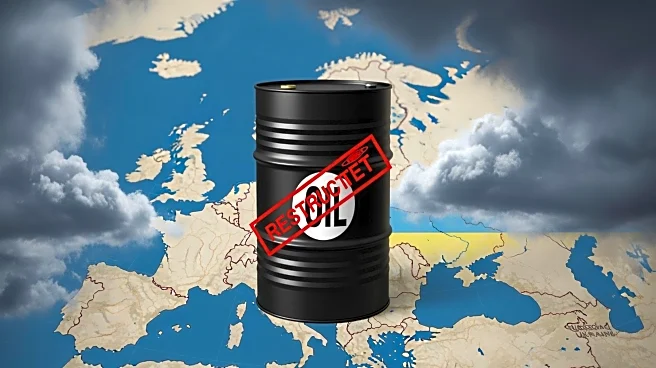What's Happening?
The U.S. has imposed new sanctions on Russia's largest oil companies, Rosneft and Lukoil, as part of a strategy to pressure the Kremlin to end its military operations in Ukraine. This move comes after
a period of perceived leniency from President Trump, who had previously refrained from applying significant pressure on Moscow. The sanctions target key economic sectors that fund Russia's military activities, aiming to weaken its capacity to sustain the conflict. Russian officials, including Dmitry Medvedev, have criticized the sanctions, viewing them as an escalation of hostilities. Despite the sanctions, Russia has historically found ways to circumvent such measures, and it remains to be seen how effective these will be in altering Russia's course.
Why It's Important?
The sanctions represent a significant shift in U.S. policy towards Russia, potentially signaling a more confrontational approach. This could have wide-ranging implications for international relations, particularly in Europe, where countries have been advocating for a stronger stance against Russian aggression. The economic impact on Russia could be substantial, affecting its oil revenue and, by extension, its military funding. For Ukraine, this development is seen as a positive step towards bringing Russia to the negotiating table. However, the risk of further escalation remains, as Russia may retaliate or seek to strengthen its alliances with other nations.
What's Next?
The U.S. may consider additional sanctions if Russia does not show willingness to negotiate peace in Ukraine. European allies are likely to support these measures, as they align with broader efforts to curb Russian aggression. The situation could lead to increased diplomatic activity, with potential for new negotiations or international summits aimed at resolving the conflict. Russia's response will be critical in determining the next steps, as it may choose to either engage in talks or further entrench its position.









